Looking for ways on how to become good parents? Anxious about raising happy, healthy children in today’s fast-paced world? You’re not alone. Parenting can be overwhelming, but the right guidance can make all the difference. We search out the 18 best parenting books to empower you with insights, strategies, and practical tips.These best parenting books will inspire and support you on your journey to being the amazing parent your children need.
Arvin is our Free AI Assistant dedicated to enhancing your learning experience. Armed with a wealth of knowledge and an ever-expanding database, Arvin can provide personalized recommendations, summarize key concepts, and help you conclude various parenting philosophies. Beside these best parenting books, just begin your parenting lesson with the help of Arvin!
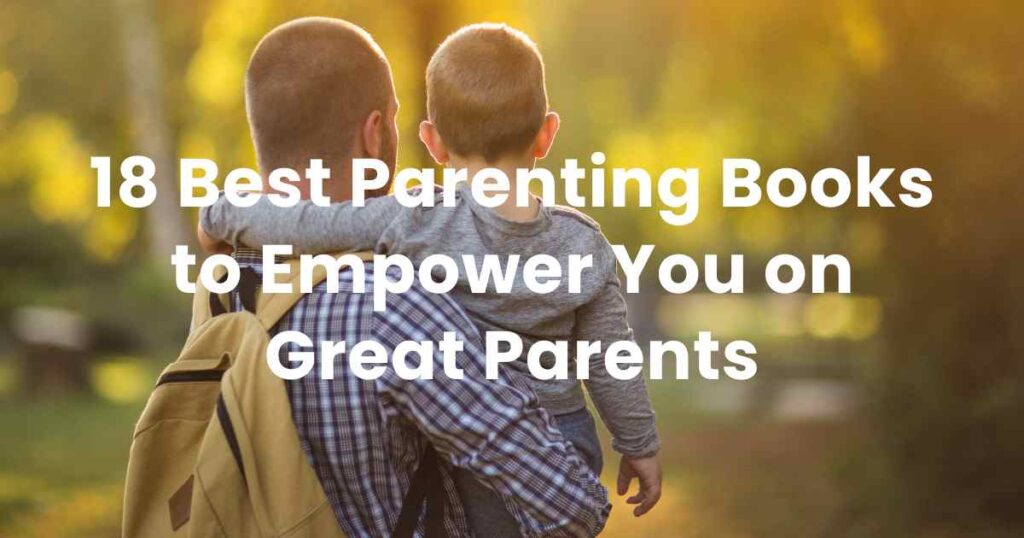
When Partners Become Parents, by Carolyn Pape Cowan and Philip A. Cowan
When Partners Become Parents by Carolyn Pape Cowan and Philip A. Cowan addresses the challenges and transitions couples face as they navigate parenthood. The book offers insights into how having children impacts relationships, emphasizing the importance of communication, teamwork, and mutual support. The authors provide practical strategies for maintaining a strong partnership while adapting to the demands of parenting, helping couples foster healthy relationships and family dynamics.
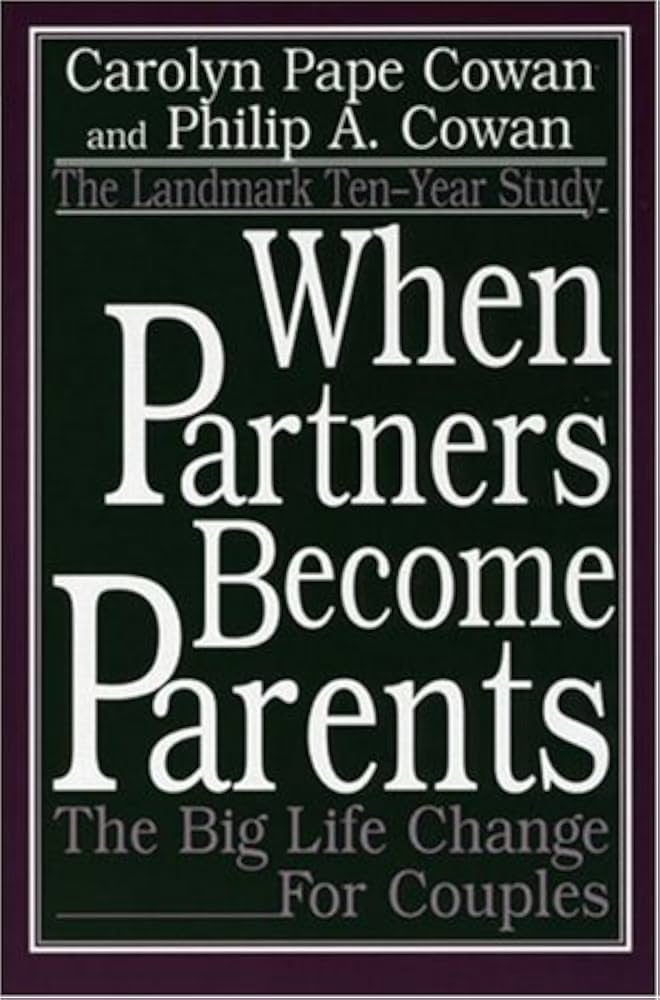
How to Raise Kids Who Aren’t Assholes by Melinda Wenner Moyer
Every parent hopes their kids don’t grow up to be a-holes. Melinda Wenner Moyer’s How to Raise Kids Who Aren’t Assholes offers an honest, tongue-in-cheek guide to raising kind, ethical kids amidst a selfish world. This refreshing, evidence-based book provides surprising perspectives on parenting issues. It highlights desirable traits like honesty, generosity, and antiracism, along with strategies to instill these values.
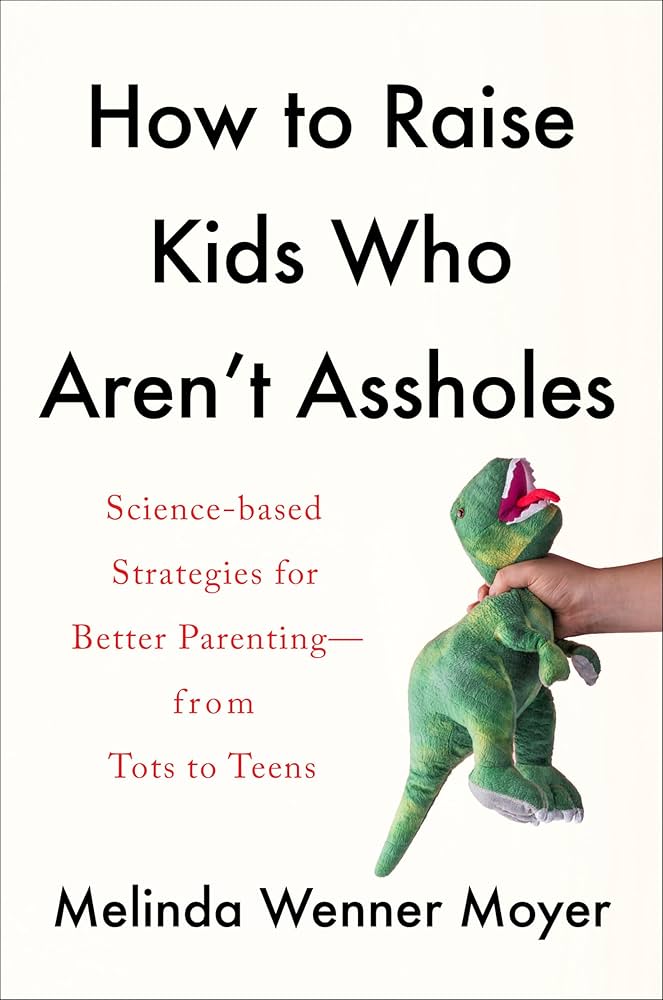
No Drama Discipline by Daniel. J. Siegel and Tina Payne Bryson
No Drama Discipline by Daniel J. Siegel and Tina Payne Bryson offers parents effective disciplinary strategies that promote understanding and connection rather than conflict. The book emphasizes the importance of brain development and emotional regulation, providing practical techniques to guide children through difficult moments while fostering a positive parent-child relationship.
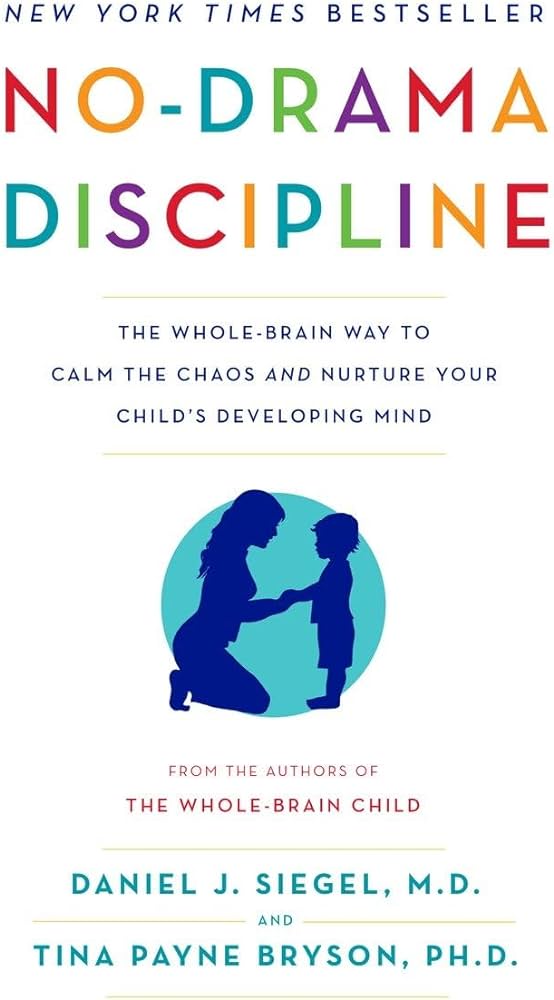
The Montessori Baby: A Parent’s Guide to Nurturing Your Baby with Love, Respect, and Understanding by Simone Davies & Junnifa Uzodike
The Montessori Baby is the ideal book for new parents who want to raise babies with love, respect, and insight from birth. It offers hundreds of practical ideas and pointers for understanding your baby through active observation and cues. This book includes tips for creating ‘Montessori spaces’ in your home and activities that support your baby’s movement and language development. If you have older children, check out The Montessori Toddler: A Parent’s Guide to Raising a Curious and Responsible Human Being!
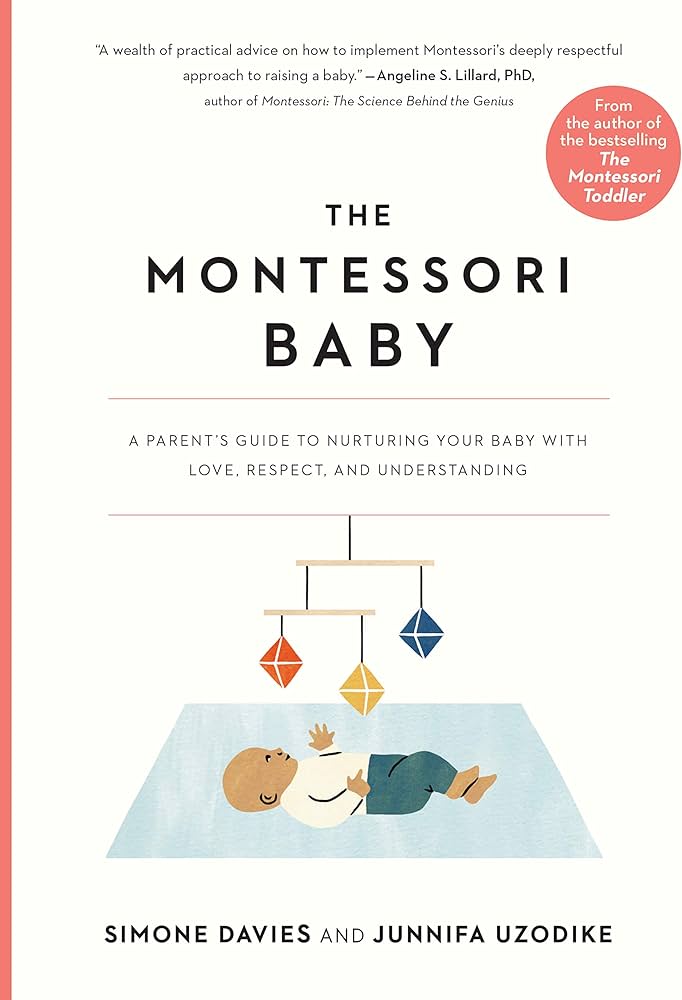
Simplicity Parenting, by Kim John Payne
Simplicity Parenting by Kim John Payne advocates for a simpler, more intentional approach to parenting. The book emphasizes reducing clutter—both physical and emotional—in children’s lives to promote well-being and creativity. Payne offers practical strategies to streamline schedules, declutter toys, and create a more peaceful home environment, helping parents foster deeper connections with their children and support their development in a hectic world.
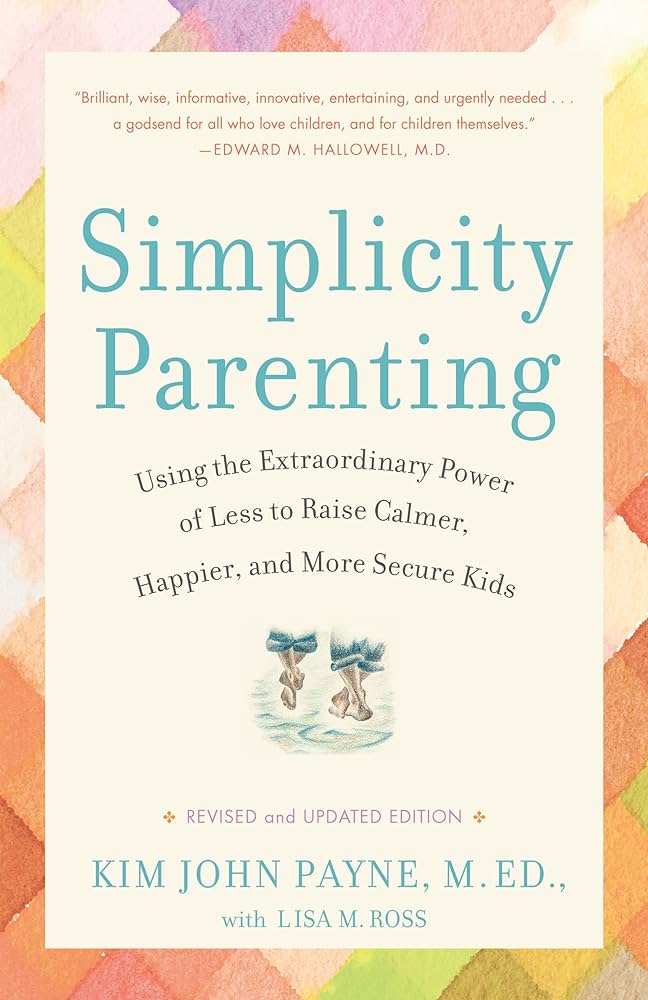
The Wonder Weeks: A Stress-Free Guide to Your Baby’s Behavior by Xaviera Plooij, Frans X. Plooij & Hetty van de Rijt PhD
The first year of a baby’s life is one of the toughest – especially if you’re new to the parenthood game! Anticipating their crankiness, fussiness, and clinginess helps win half the battle, often linked to developmental leaps. The Wonder Weeks offers groundbreaking behavioral research explaining how babies undergo ten magical “leaps” in their first 20 months of life. It reassures parents that fussiness, regression and wakeful nights are necessary for growth and won’t last forever.
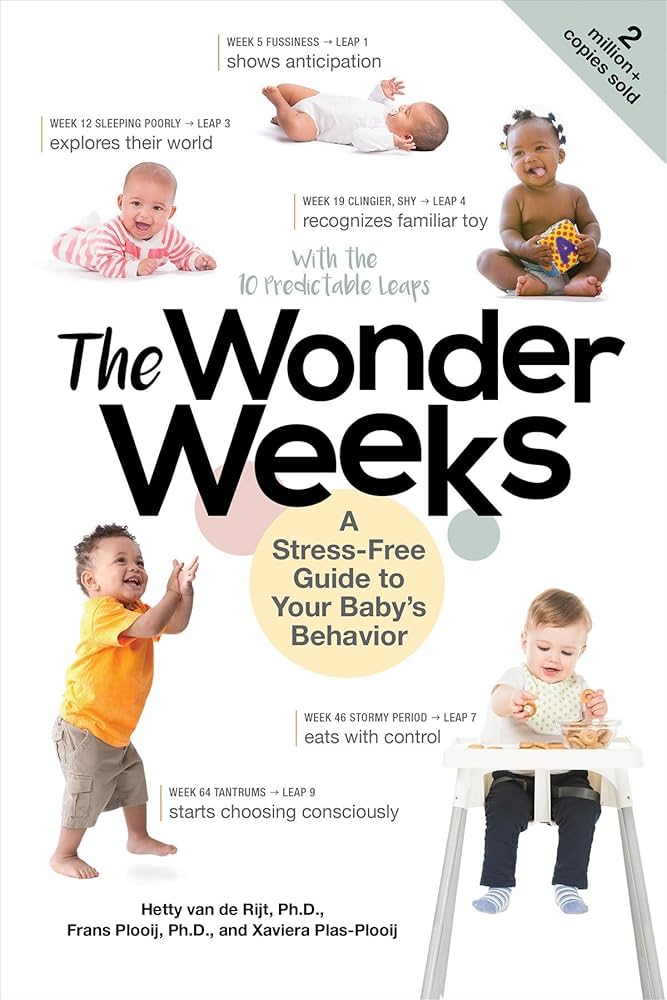
Positive Parenting by Rebecca Eanes
Positive Parenting by Rebecca Eanes encourages a nurturing and empathetic approach to raising children. The book offers practical tools and strategies that focus on building a strong parent-child connection while promoting positive behaviors, emotional intelligence, and effective communication. Eanes emphasizes the importance of modeling kindness and respect, helping parents create a supportive environment for their children to thrive.
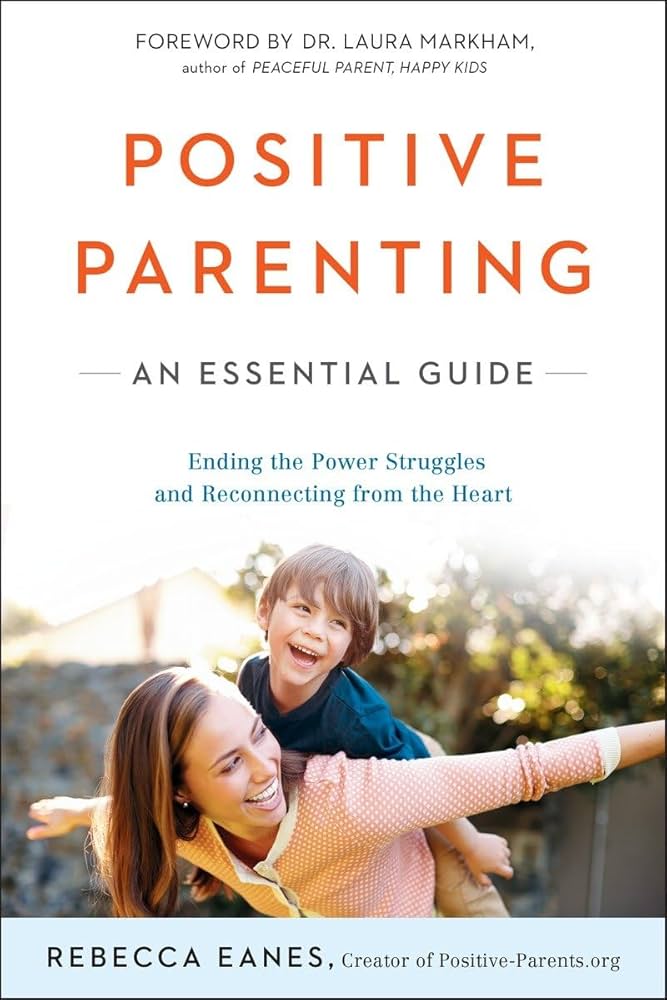
The Whole-Brain Child: 12 Revolutionary Strategies to Nurture Your Child’s Developing Mind by Daniel J. Siegel & Tina Payne Bryson
Neuropsychiatrist Daniel J. Siegel and parenting expert Tina Payne Bryson’s The Whole-Brain Child details twelve strategies that promote healthy brain development, helping kids become calmer and happier. This book explains how the right brain’s emotions often overpower the left brain’s logic in young children, leading to tantrums and sulking. The age-appropriate strategies for tackling daily struggles are particularly helpful!
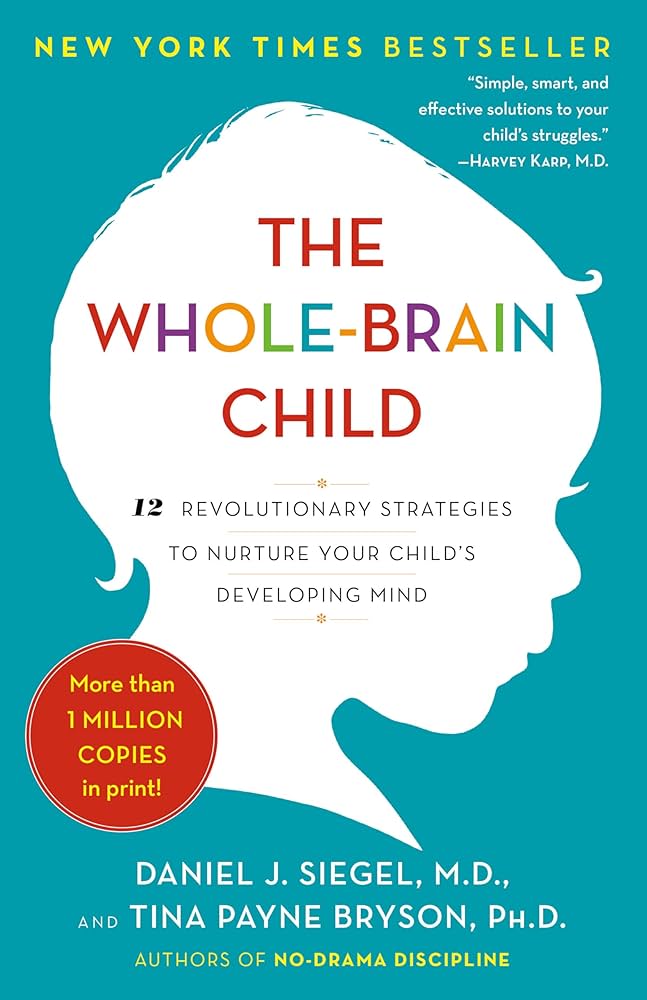
The Book You Wish Your Parents Had Read by Philippa Perry
The Book You Wish Your Parents Had Read by Philippa Perry provides valuable insights into the parent-child relationship. The book encourages parents to reflect on their own experiences and emotional responses, offering practical advice on communication, understanding, and connection. Perry emphasizes the importance of emotional awareness and healthy boundaries, helping parents create nurturing environments that foster resilience and self-esteem in their children.
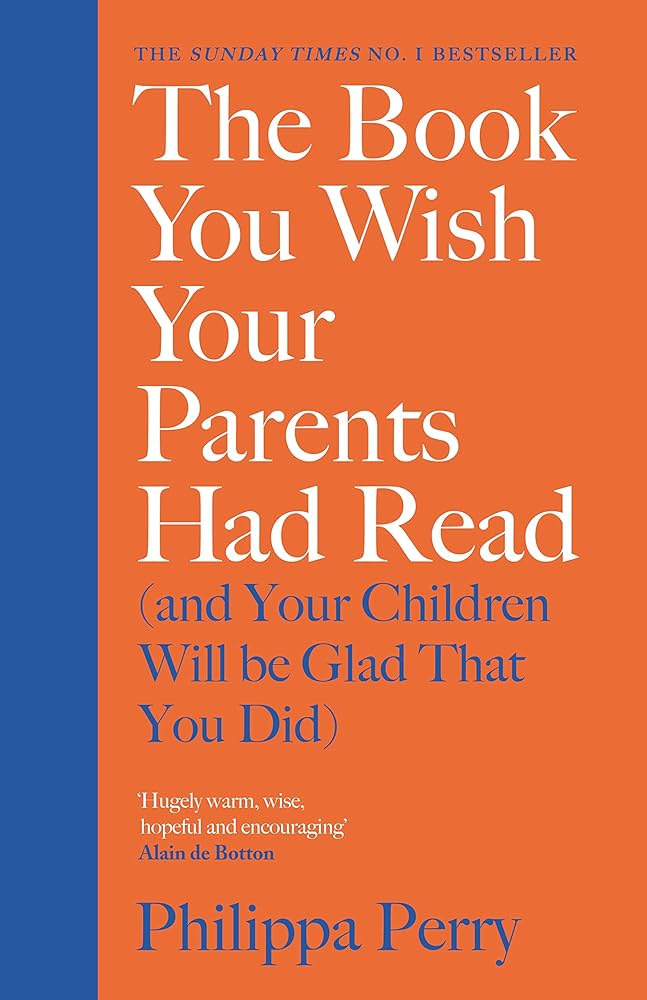
Elevating Child Care: A Guide to Respectful Parenting by Janet Lansbury
Janet Lansbury, inspired by Magda Gerber’s philosophy, encourages parents to view babies as capable, unique beings. Elevating Child Care collects 30 popular articles from Janet’s website, addressing common infant and toddler issues, like eating and sleeping. Janet’s insightful philosophy builds a closer parent-child relationship and helps children become authentic, confident, and successful adults.
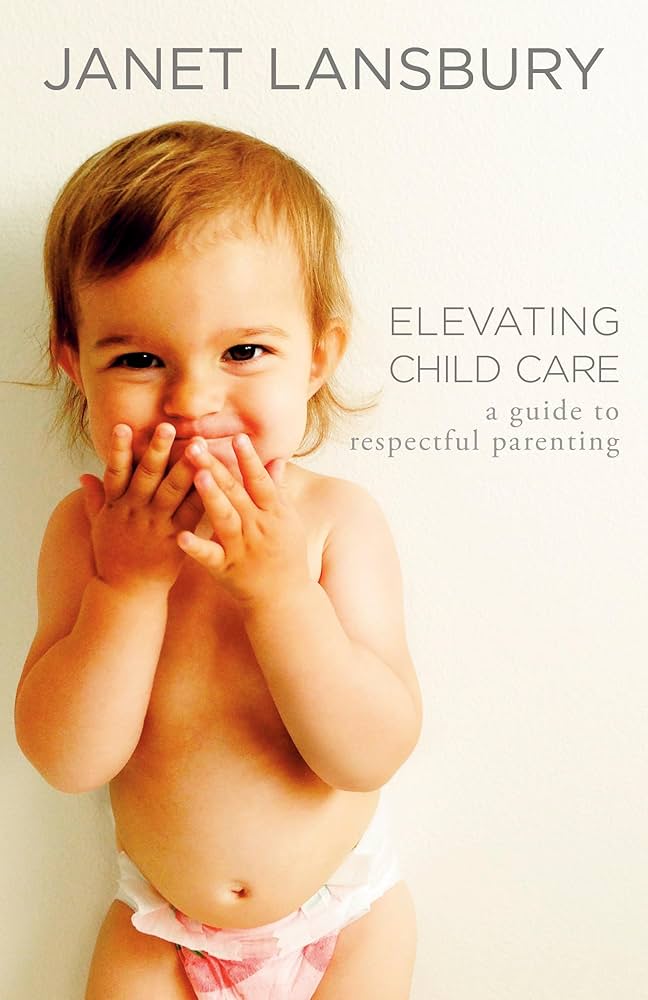
The Yes Brain: How to Cultivate Courage, Curiosity, and Resilience in Your Child by Daniel J. Siegel
The Yes Brain: How to Cultivate Courage, Curiosity, and Resilience in Your Child by Daniel J. Siegel focuses on fostering a positive mindset in children. The book explains how parents can encourage traits like courage and curiosity through supportive communication and mindful parenting. Siegel provides practical strategies and insights from neuroscience to help children develop resilience, embrace challenges, and approach life with a “yes” mentality.
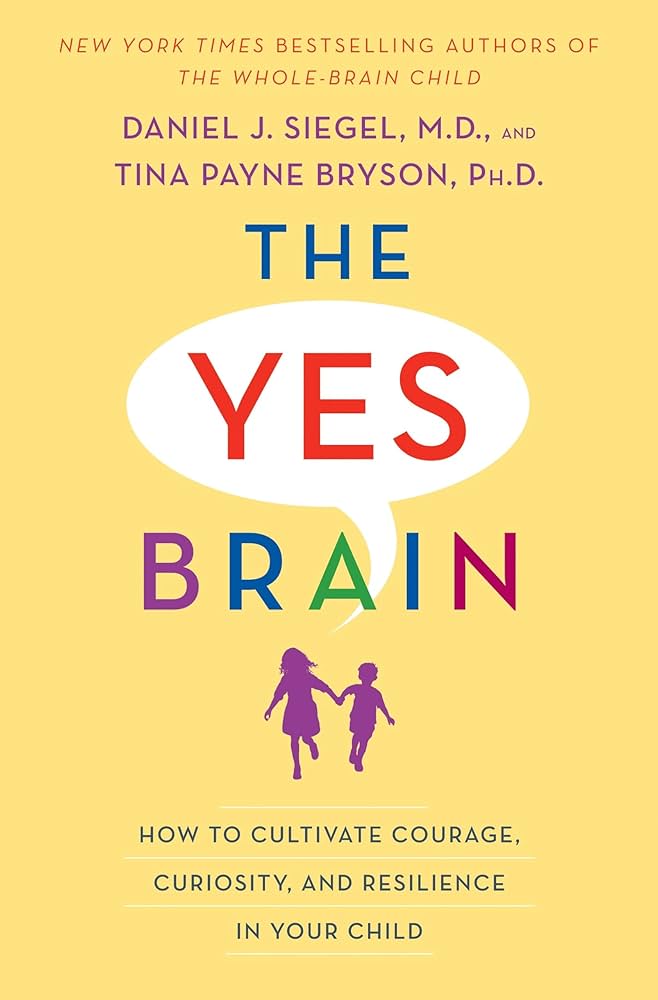
No Bad Kids: Toddler Discipline Without Shame by Janet Lansbury
Janet Lansbury’s 20 years of hands-on experience and research guide us in navigating toddler behaviors through respectful parenting. No Bad Kids addresses topics like punishment, cooperation, boundaries, tantrums, and hitting, offering practical tips for those critical years when toddlers test our patience and love.
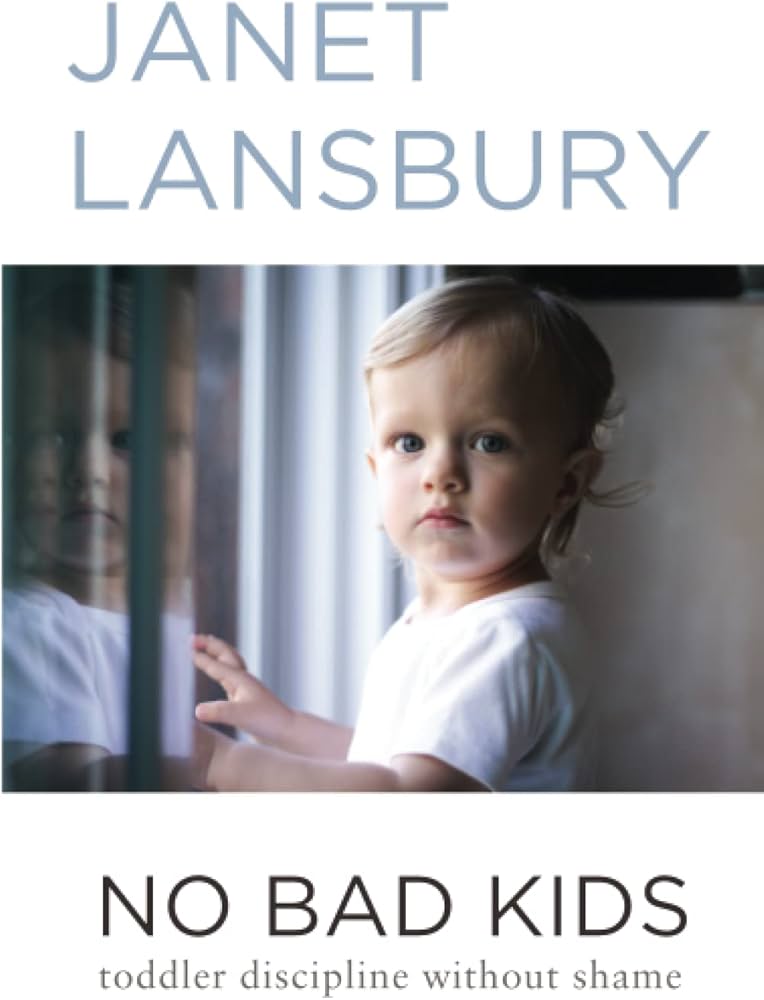
Nurture Shock: New Thinking About Children by Po Bronson and Ashley Merryman
When parenting, do we trust our instincts or get caught up in others’ advice before acting? Nurture Shock explores this question, with the authors presenting findings that acknowledge complex issues without overwhelming readers. Po Bronson and Ashley Merryman explain why previous beliefs were wrong and how new, science-based ideas function better. You’ll also find tips on how you can change your behaviour as a parent to approach each situation calmly. Nurture Shock covers praise, sleep deprivation, discussing race, lying, sibling conflict, teen rebellion, self-control and focus, bullying, and more.
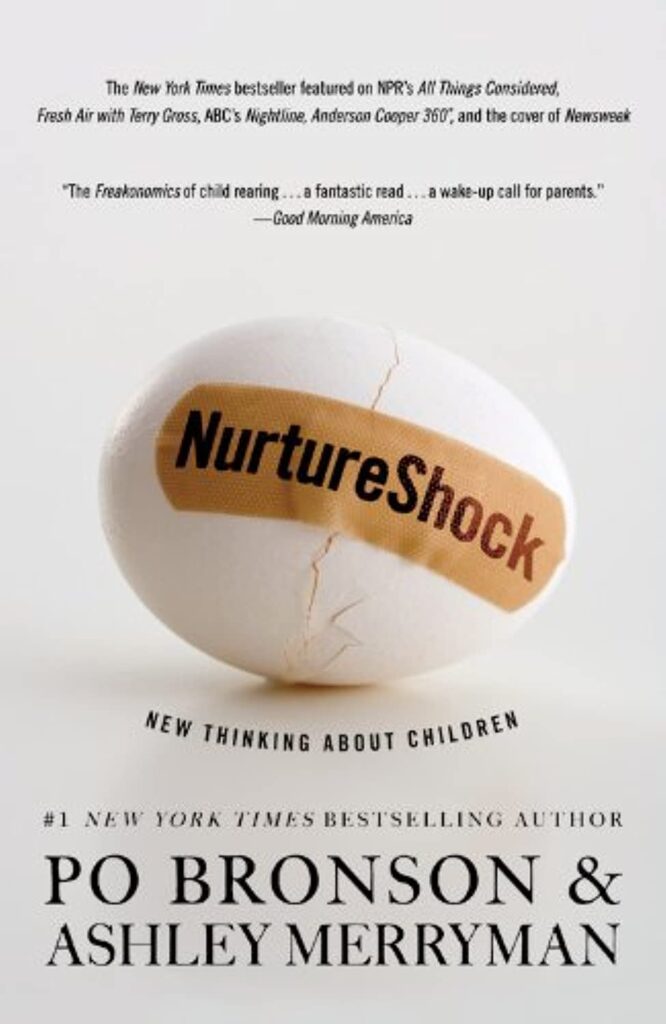
How to Talk so Little Kids Will Listen: A Survival Guide to Life with Children by Joanna Faber & Julie King
How to Talk so Little Kids Will Listen organizes common challenges, like refusal to do tasks and difficult behaviors. This essential parenting guide provides communication strategies and includes a chapter addressing the special needs of children with sensory processing and autism spectrum disorders. With this useful parenting book you’ll feel empowered to establish rewarding, joyful relationships with kids from ages 2-7 years old.
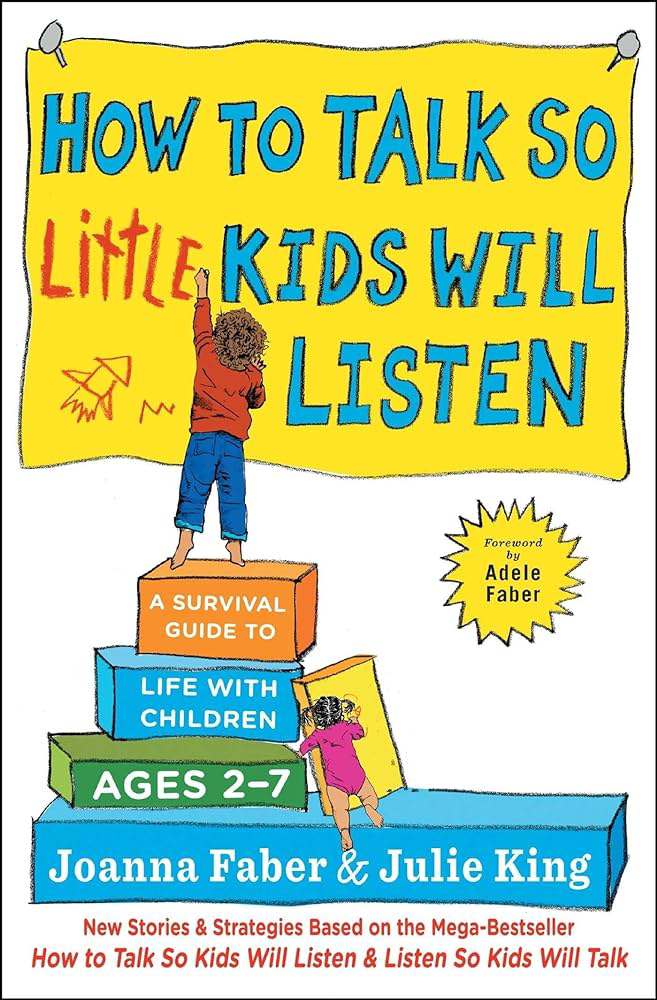
UnSelfie: Why Empathetic Kids Succeed in Our All-About-Me World by Michele Borba
UnSelfie: Why Empathetic Kids Succeed in Our All-About-Me World by Michele Borba explores the critical role of empathy in a child’s development. The book outlines how cultivating empathy can lead to greater success and well-being in today’s self-centered society. Borba provides practical strategies for parents and educators to teach empathy, encouraging children to connect with others, develop strong relationships, and navigate social challenges effectively.
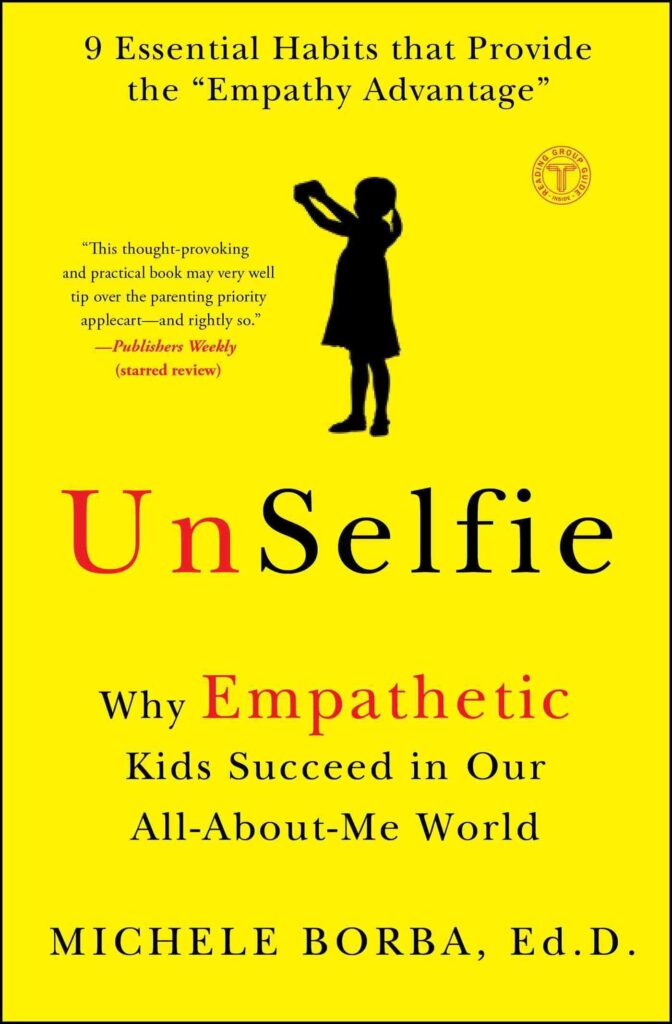
Untangled: Guiding Teenage Girls Through the Seven Transitions into Adulthood by Lisa Damour, Ph.D.
Untangled notes that parenting teens can vary by gender due to hormonal differences, especially for parents of daughters. This engaging guide explores the latest research on seven normal developmental transitions that turn girls into adults. It offers realistic scenarios, constructive engagement advice, and answers to common questions parents of teen daughters face.
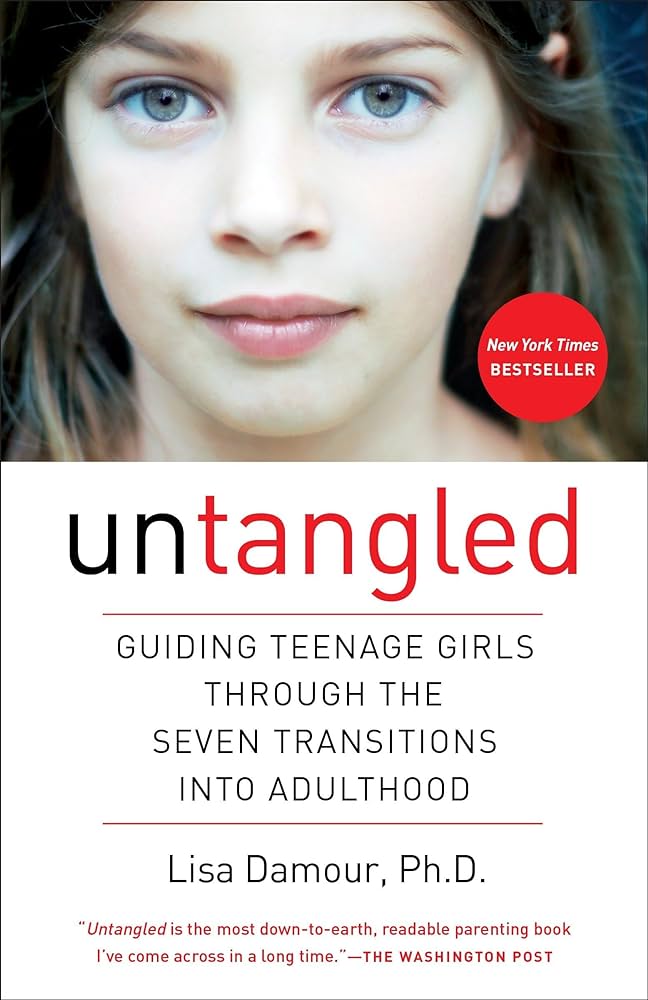
Raising Boys: Why Boys Are Different–And How to Help Them Become Happy and Well-Balanced Men by Steve Biddulph
Raising Boys provides a much-needed practical guide on raising sons amidst stories of toxic masculinity and power dynamics. Steve Biddulph addresses tough topics like sex, violence, homework, sports, and the Internet. He approaches these issues with gentle humor and proven wisdom, drawing from his decades of experience as a family psychologist and father. The book even explores mitigating the dangerous effects of online pornography, male-specific hearing problems, and teen driving on boys.
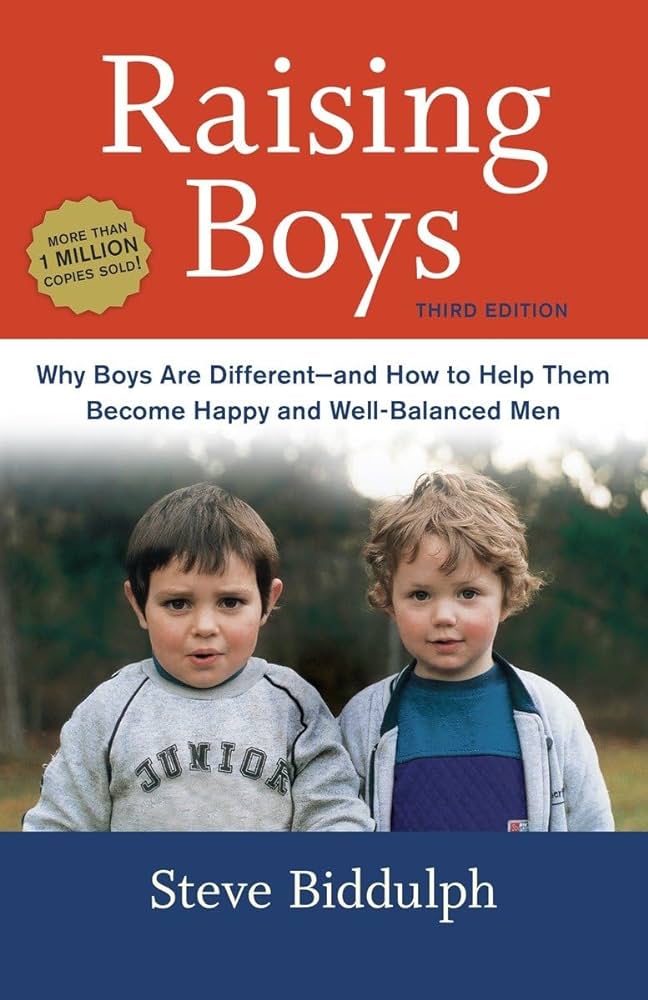
The 5 Love Languages of Children by Gary Chapman
The 5 Love Languages of Children by Gary Chapman and Ross Campbell explores how understanding children’s love languages enhances connections. The book identifies five ways children express and receive love: words of affirmation, quality time, receiving gifts, acts of service, and physical touch. Chapman and Campbell provide practical advice for parents to identify each child’s love language, fostering deeper relationships and enhancing their emotional security.
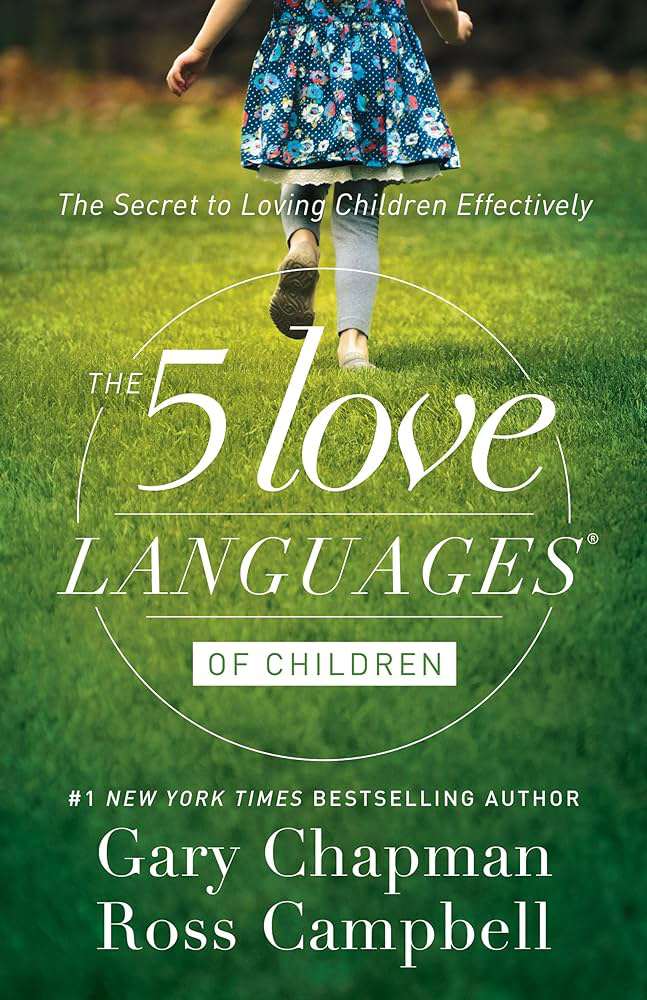
Conclusion
Feeling unsure about the parenting decisions you’ve made? Don’t worry. Being a good parent is an ongoing process of continuous learning and development. Just start your parenting lesson with these best parenting books. The 18 best parenting books provide the tools to help you in creating enduring, loving relationships with your kids.
Don’t forget, whether you’re looking for advice on positive discipline, understanding child development, or fostering healthy communication, Arvin is here to support you.
FAQs
The Whole-Brain Child
How to Talk So Kids Will Listen & Listen So Kids Will Talk
Simplicity Parenting
The 5 Love Languages of Children
Positive Discipline
Parents can build resilience in their children by encouraging and creating opportunities for them to practice these concepts. Dr. Ginsburg identified the 7C’s of resilience as competence, confidence, connection, character, contribution, coping, and control.
Reading best parenting books provides valuable insights, practical strategies, and diverse perspectives, fostering knowledge and emotional support. They help improve communication and empathy, making parenting more manageable while validating parents’ experiences and challenges.

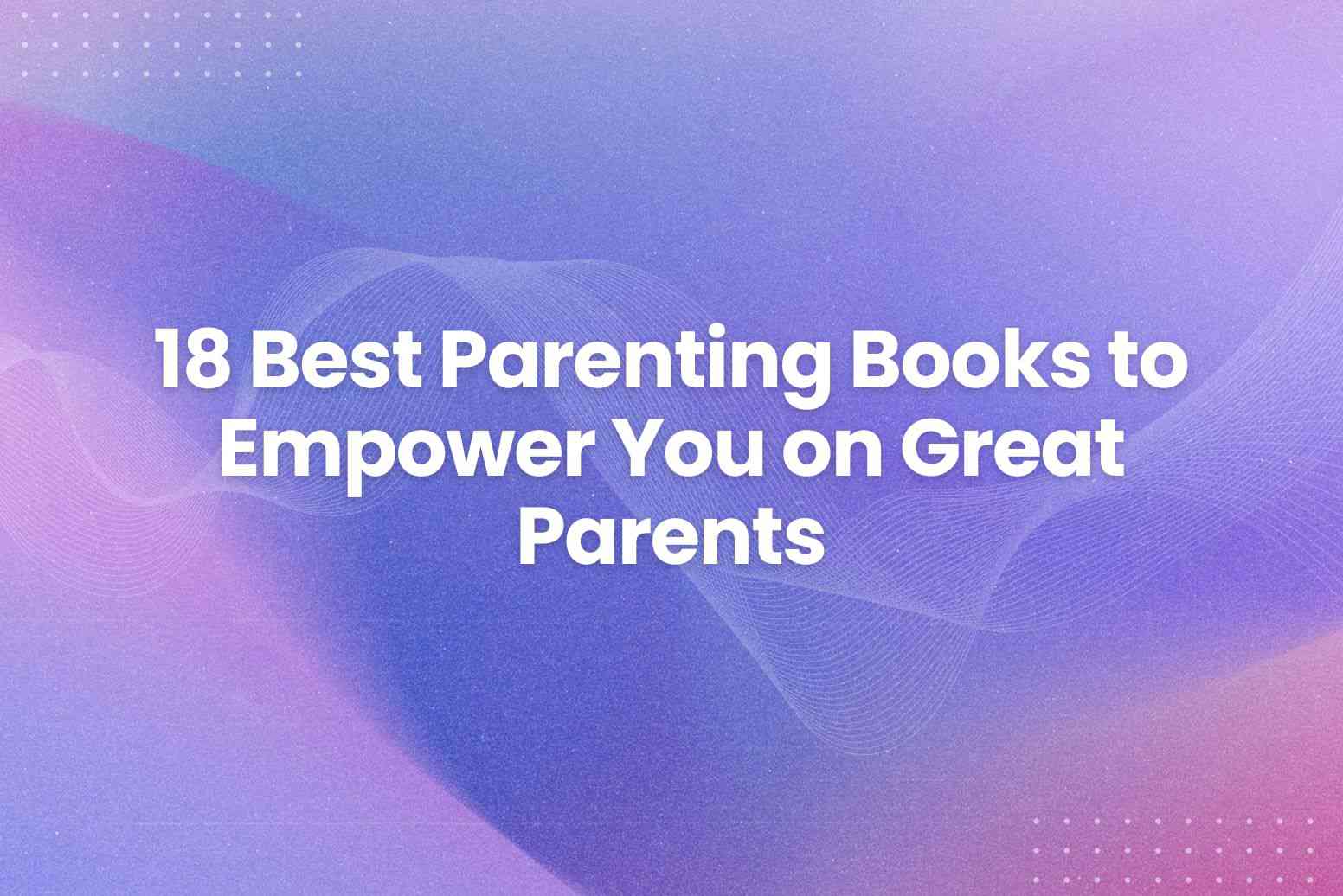


![Top 10 Research Topics for Students [2024 Ultimate Guide]](https://arvin.chat/wp-content/uploads/2024/08/Top-10-Research-Topics-for-Students-2024-Ultimate-Guide.jpg)

